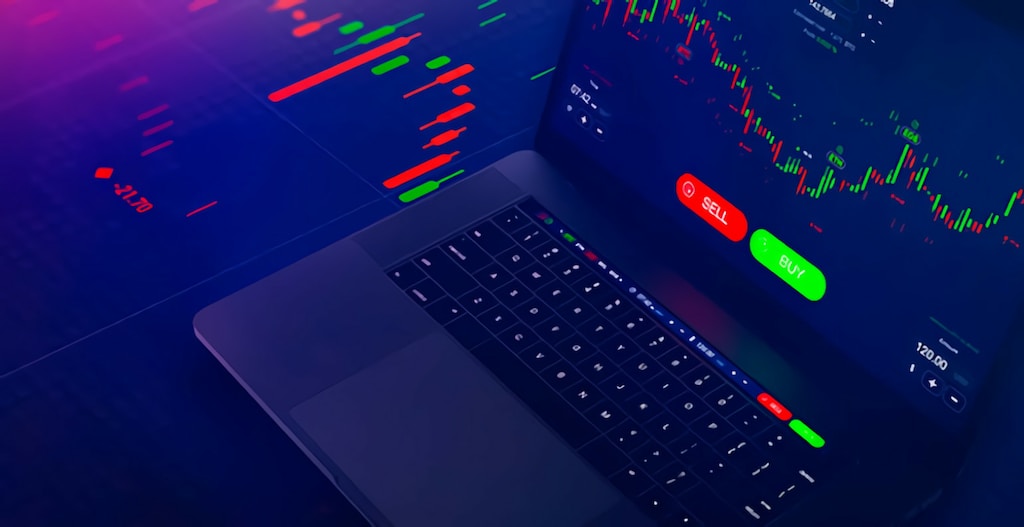
Binary options and forex trading are two popular forms of trading that offer different benefits and risks. While both involve trading financial instruments, the approach, and outcomes are different. It’s important to get educated about these trading types so that you can confidently choose between the best website for binary options and a forex platform. In this article, we’ll take a closer look at the differences between them, and which one may be more suitable for you.
What Are Binary Options?
Binary options are a form of trading where you predict the price movement of an asset within a specified time frame. Unlike traditional trading, where you buy or sell an asset, binary options involve betting on the direction of an asset’s price movement. You can trade binary options on various assets, including stocks, commodities, and currencies.
When trading binary options, you are presented with two options – “call” and “put.” A “call” option is when you bet that the price of an asset will rise within the specified time frame. A “put” option is when you bet that the price of an asset will fall within the specified time frame. If your prediction is correct, you can earn a profit. If your prediction is wrong, you will lose your investment.
Binary options offer a few key advantages, including simplicity and high returns. Since you are only predicting the direction of an asset’s price movement, there is no need to worry about the actual price of the asset. Additionally, binary options mostly offer high returns, sometimes as high as 80-90% of your investment.
However, binary options also carry significant risks. The short-term nature of the trades means that you can lose your investment quickly. Additionally, the lack of regulation in the industry means that there are many fraudulent brokers out there.
What is Forex Trading?
Forex or foreign exchange trading involves buying and selling currencies. Forex traders speculate on the value of one currency against another, hoping to profit from the difference in price. This is a decentralized market, meaning that it is not traded on a single exchange. Instead, it takes place over the counter, between individual traders or institutions.
Forex trading offers several advantages, including liquidity and low transaction costs. Since the market is so large and active, there is always a buyer or seller for any currency pair you want to trade. Additionally, this type of trading typically has low transaction costs, since there are no commissions or fees charged by brokers.
However, forex trading also carries significant risks. The high volatility of the market means that you can lose your investment quickly if you don’t have a solid trading strategy. Additionally, it requires a significant amount of knowledge and experience. Without proper education and training, you are likely to make costly mistakes.
Understanding the intricacies of Forex trading can be challenging, especially when navigating the vast array of available resources. While many platforms offer insights and strategies, it’s crucial to find a resource that provides comprehensive and up-to-date information tailored to both beginners and seasoned traders. For those looking to deepen their understanding of Forex trading dynamics, read more for detailed guides and expert analyses. This can be an invaluable asset in making informed decisions and refining trading strategies.
Binary Options vs. Forex: Which One is Best for You?
When it comes to choosing between binary options and forex, there is no one-size-fits-all answer. The best choice for you will depend on your individual needs, goals, and risk tolerance. Here are some factors to consider when making your decision:
Trading Style
Your trading style can determine whether binary options or forex is a better fit for you. Binary options are better suited for traders who prefer short-term trades with high potential returns. Forex, on the other hand, is better suited for traders who prefer longer-term trades with lower potential returns.Risk Tolerance
Both binary options and forex carry significant risks. However, binary options are generally considered riskier due to their short-term nature and lack of regulation. If you have a low risk tolerance, forex trading may be a better fit for you.Education and Experience
Both binary options and forex require a significant amount of knowledge and experience. However, the latter is typically considered more complex and requires more education and training. If you are willing to invest the time and effort into learning how to trade forex, it may be a better fit for you.Market Volatility
Both binary options and forex are impacted by market volatility. However, forex is typically considered more volatile than binary options. If you are comfortable with higher levels of volatility and risk, forex trading may be a better fit for you.Trading Platform
The trading platform you use can also impact which type of trading is best for you. Binary options trading typically involves using a specialized platform, while forex trading can be done on a variety of platforms. If you prefer a specific platform or have experience with a particular platform, this may influence your decision.Capital Requirements
Binary options typically require a smaller initial investment than forex. This can make it more accessible to traders with limited capital. However, the potential returns are also lower than with forex. If you have a larger amount of capital to invest, forex trading may offer better returns.
Conclusion
In conclusion, both binary options and forex trading offer different benefits and risks. The best choice for you will depend on your individual needs, goals, and risk tolerance. Ultimately, it’s important to educate yourself about both types of trade and choose the one that aligns with your individual preferences and goals.